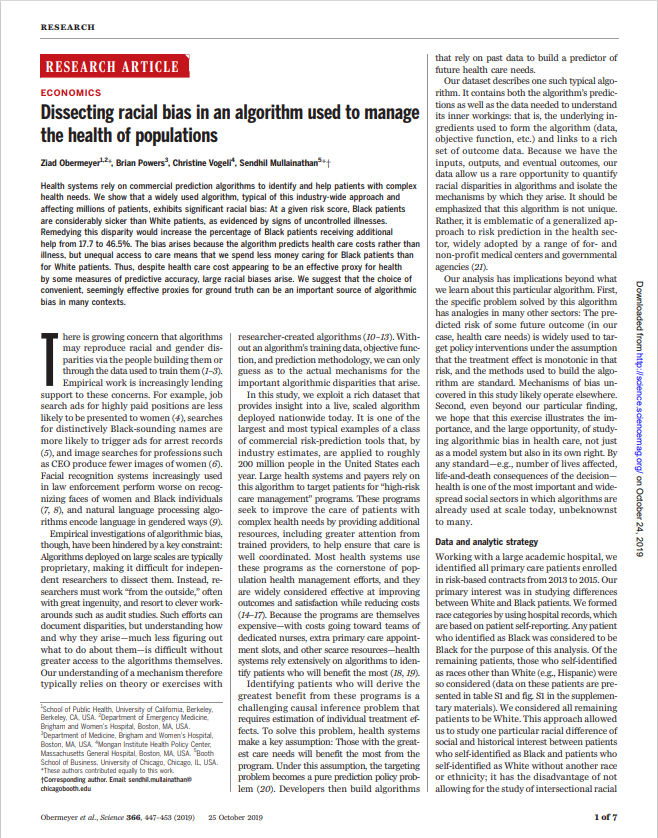Headline
When identifying patients with complex health needs for interventions, algorithms that rely on cost data as a proxy for health status may lead to under-identification of Black patients.
Context
Health systems and payers frequently use risk prediction tools and algorithms to identify high-need patients for population health management programs and estimate which patients would most benefit from a particular program, such as care coordination. This study of a widely used algorithm to predict patient costs evaluated whether the algorithm exhibited racial bias.
Findings
Due to unequal access to care, health care costs are less for Black patients despite the same level of need as white patients. This algorithm that relies on cost data to identify patients with complex health needs under-identifies Black patients by more than half. Within risk scores assigned by this algorithm, Black patients have higher health needs than white patients, as measured by uncontrolled disease.
Takeaways
Using cost as a proxy for health status can lead to racial bias in care. Health systems and payers should assess whether predictive algorithms are leading to incorrect predictions that Black patients are healthier than comparable white patients, and then adjust algorithms to eliminate racial bias.



